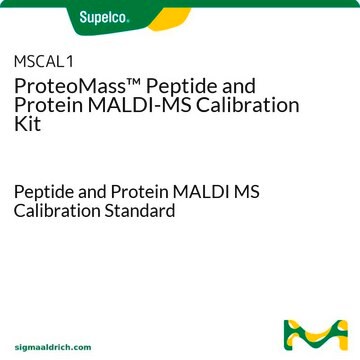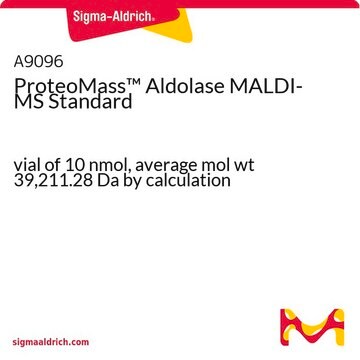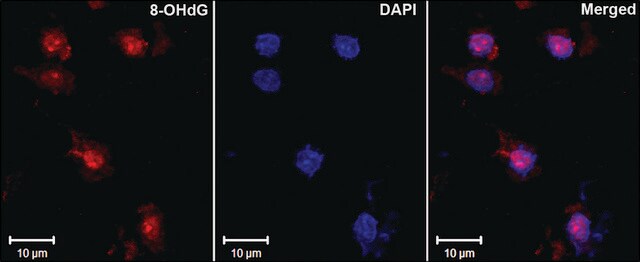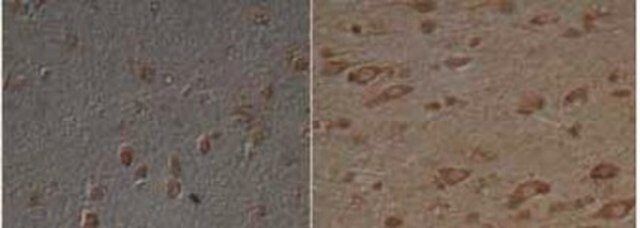MSCAL3
ProteoMass™ Protein MALDI-MS Calibration Kit
Protein MALDI MS Calibration Standard
Synonym(s):
Protein Mass Spectrometry Calibrators
About This Item
Recommended Products
product line
ProteoMass™
Quality Level
quality
Protein MALDI MS Calibration Standard
application(s)
cleaning products
cosmetics
flavors and fragrances
food and beverages
personal care
storage temp.
15-25°C
Application
ProteoMass™ Protein MALDI-MS Calibration Kit has been used as a mass calibration standard for MALDI-TOF MS (matrix assisted laser desorption ionization-time of flight mass spectrometry) analysis.
Legal Information
Kit Components Only
- Sinapinic acid, Use tested for MALDI-TOF Mass Spec. 8 x 10
Kit Components Also Available Separately
- I6279ProteoMass™ Insulin MALDI-MS Standard, vial of 10 nmol, monoisotopic mol wt 5,729.6087 Da 2 x 10SDS
- C8857ProteoMass™ Cytochrome c MALDI-MS Standard, vial of 10 nmol, (M+H+) 12,361.96 Da by calculation 2 x 10SDS
- A8971ProteoMass™ Apomyoglobin MALDI-MS Standard, vial of 10 nmol, (M+H+) 16,952.27 Da by calculation 2 x 10SDS
- A9096ProteoMass™ Aldolase MALDI-MS Standard, vial of 10 nmol, average mol wt 39,211.28 Da by calculation 2 x 10SDS
- A8471ProteoMass™ Albumin MALDI-MS Standard, vial of 10 nmol, average mol wt 66,429.09 Da by calculation 2 x 10SDS
- Acetonitrile 30 mL
related product
Signal Word
Danger
Hazard Statements
Precautionary Statements
Hazard Classifications
Acute Tox. 4 Dermal - Acute Tox. 4 Inhalation - Acute Tox. 4 Oral - Eye Irrit. 2 - Flam. Liq. 2 - Skin Irrit. 2 - STOT SE 3
Target Organs
Respiratory system
Storage Class Code
3 - Flammable liquids
WGK
WGK 3
Choose from one of the most recent versions:
Certificates of Analysis (COA)
Don't see the Right Version?
If you require a particular version, you can look up a specific certificate by the Lot or Batch number.
Already Own This Product?
Find documentation for the products that you have recently purchased in the Document Library.
Customers Also Viewed
Related Content
Discover our wide variety of products for intact mass analysis of monoclonal antibodies, including size-exclusion columns (SEC), ion exchange columns, reverse-phase columns, HPLC buffers, MALDI matrices and standards, high-purity solvents, reagents, tools for protein sample preparation, and certified reference materials.
Our team of scientists has experience in all areas of research including Life Science, Material Science, Chemical Synthesis, Chromatography, Analytical and many others.
Contact Technical Service











